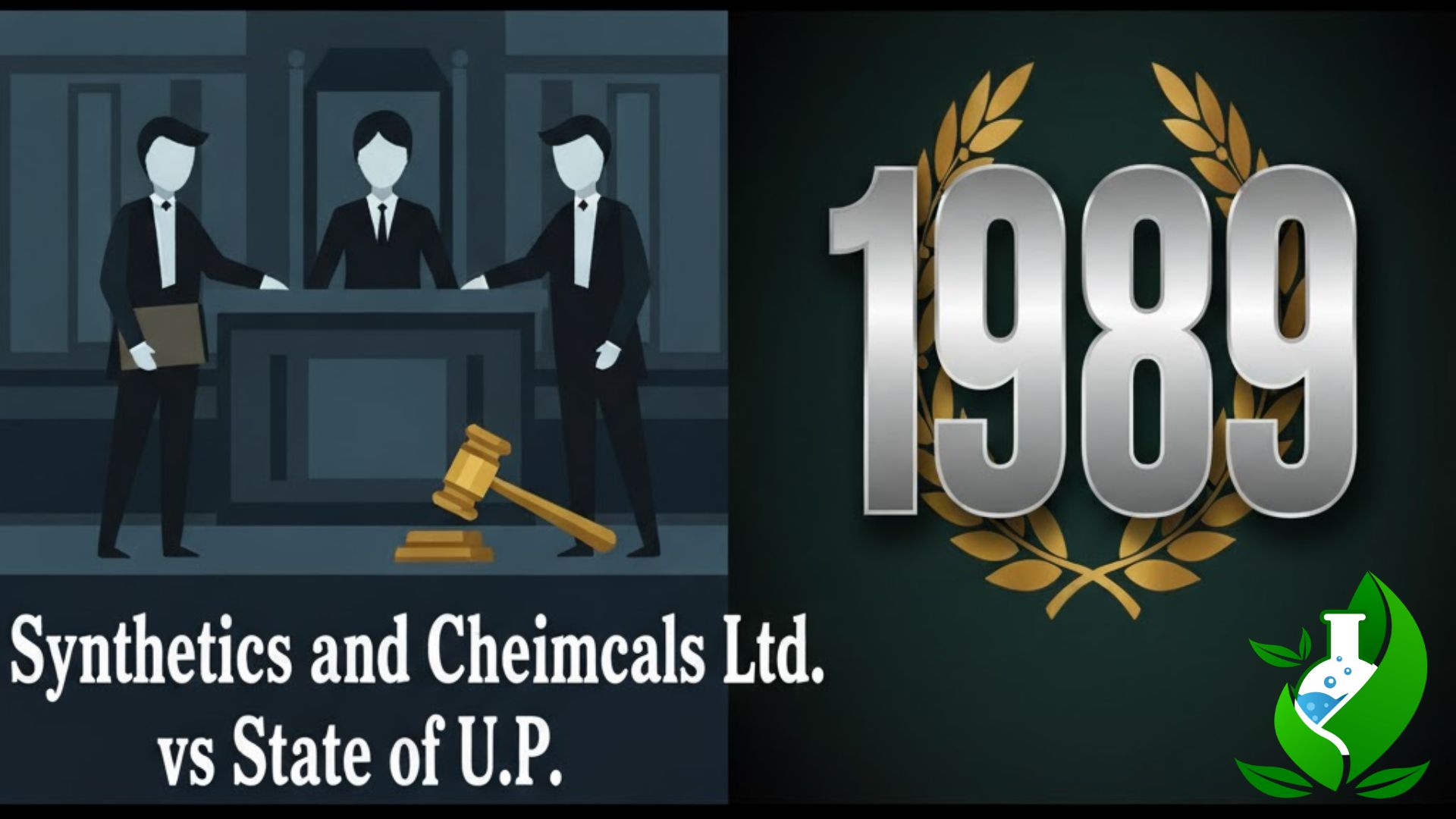
Case Summary: Synthetics and Chemicals Ltd. & Others vs State of U.P. & Others (1989)
Citation Stats: (1989) 10 SC CK 0048 | AIR 1990 SC 1927 | (1989) 4 JT 267 | (1989) 2 SCALE 1045 | (1990) 1 SCC 109 | (1989) 1 SCR 623 Supp
Court: Supreme Court of India
Bench: Full Bench – E. S. Venkataramiah, C.J.; Sabyasachi Mukherjee, J.; S. Natarajan, J.; Ranganath Misra, J.; K. N. Singh, J.; G. L. Oza, J.; B. C. Ray, J.
Date of Decision: 25-10-1989
Final Decision: Disposed Of
[Judgment Source]
https://www.courtkutchehry.com/Judgement/Search/AdvancedV2?docid=294161
Facts of the Case
Multiple writ petitions, civil appeals, and review petitions challenged the power of States to levy vend fees or duties on industrial alcohol under various State legislations. The lead petition, filed by Synthetics & Chemicals Ltd., contested a 1979 U.P. notification imposing vend fees on industrial alcohol. Similar challenges arose from Maharashtra, Tamil Nadu, Andhra Pradesh, and other States over amendments granting exclusive privilege to the State in the manufacture, sale, and distribution of alcohol, including industrial alcohol. Petitioners argued that industrial alcohol is primarily used as a raw material in industries and is under Union control per the Industries (Development & Regulation) Act, 1951.
Law Points Raised
1. Whether States have legislative competence to levy excise duty or vend fees on industrial alcohol.
2. Scope of Entry 8, List II (State List) regarding 'intoxicating liquor' and its applicability to industrial alcohol.
3. Extent of Union control over industrial alcohol under Entry 52, List I and Section 18G of the IDR Act.
4. Whether States can claim exclusive privilege over production and trade in industrial alcohol.
5. Relationship between Article 47 (Directive Principles) and industrial development policies.
Acts / Provisions / Articles Referred
• Constitution of India – Articles 19(1), 21, 245, 246, 265, 47.
• Industries (Development and Regulation) Act, 1951 – Section 2, Section 18G.
• U.P. Excise Act, 1910 – Sections 24A, 24B.
• Bombay Prohibition Act, 1949 – Section 49.
• Andhra Pradesh Excise Act, 1968.
• Tamil Nadu Prohibition Act.
Judgements Referred
• Previous Supreme Court rulings on legislative competence in excise matters.
• Patiala Distillers case and other precedents distinguishing potable from industrial alcohol.
Obiter Dicta
The transformation of India's industrial landscape since independence requires a re-examination of earlier views on 'alcoholic liquor for human consumption'. States must align their regulatory powers with the Union’s role in industrial development.
Ratio Decidendi
The Supreme Court held that industrial alcohol (rectified spirit not fit for human consumption) falls under Union jurisdiction by virtue of the IDR Act and Entry 52, List I. States lack legislative competence to levy duties or fees on industrial alcohol except to regulate its use for potable purposes.
Final Ruling
The Court invalidated State imposts on industrial alcohol unrelated to regulation of potable use, reaffirming Union control. States may regulate to prevent diversion for human consumption but cannot impose taxes or fees as a source of revenue.
Relevant Paragraph Numbers
Paras: 2, 3, 10, 20, 38, 42, 52, 59, 67.
Summary
This landmark judgment clarified the demarcation of legislative powers over industrial alcohol. It reinforced that the Union has exclusive jurisdiction over industrial alcohol under the IDR Act, limiting State powers to regulatory measures aimed at public health and preventing misuse for potable purposes.
[Judgment Source]
https://www.courtkutchehry.com/Judgement/Search/AdvancedV2?docid=294161